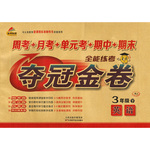题目内容
Every day we go to school and listen to the teacher,and the teacher will ask us some questions.Sometimes,the classmates will ask for your opinions of the work of the class.When you are telling others in the class what you have found out about these topics,remember that they must be able to hear what you are saying.You are not taking part in a family conversation or having a chat with friends—you are in a slightly unnatural situation where a large group of people will remain silent,waiting to hear what you have to say.You must speak so that they can hear you—loudly enough and clearly enough but without trying to shout or appearing to force yourself.
Remember,too,that it is the same if you are called to an interview whether it is with a professor of your school or a government official who might meet you.The person you are seeing will try to put you at your ease (not worried) but the situation is somewhat different from that of an ordinary conversation.You must take special care that you can be heard.
1.When you speak to the class,you should speak_______.
A. as slowly as possible B. in a low voice
C. loudly D. forcefully
2.Usually.when you speak to the class,the class is_______.
A. noisy B. quiet
C. having a rest D. serious
3.If you are having a conversation with an official,the most important thing for you is_______.
A. to show your ability
B. to be very gentle
C. to make sure that you can be heard
D. to put the official at ease
4.The main idea of this passage is_______.
A. that we should talk in different ways in different situations
B. that we must speak loudly
C. that we must keep silent at any time
D. that we must ta]k with the class
 夺冠金卷全能练考系列答案
夺冠金卷全能练考系列答案

 it easy.
it easy. ght. And I wouldn’t have then, only I sent up this cotton waste and oil from the engine-room this afternoon for a girl upstairs who had her hand burned with a smoothing-iron. I’ve been firing the engine in that laundry for the last few weeks.”
ght. And I wouldn’t have then, only I sent up this cotton waste and oil from the engine-room this afternoon for a girl upstairs who had her hand burned with a smoothing-iron. I’ve been firing the engine in that laundry for the last few weeks.”